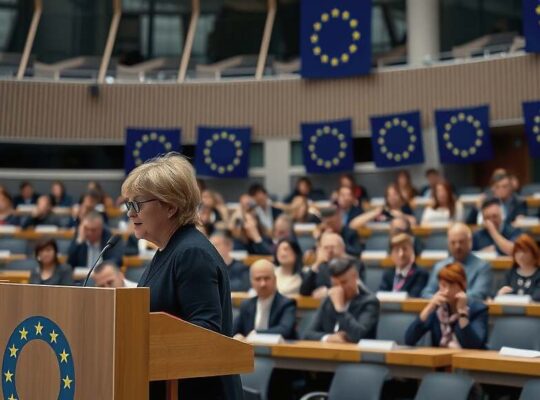A significant and concerning rise in online hate speech and disinformation is gripping Germany, according to newly released data from the Federal Statistical Office (Destatis). The figures, compiled for the first quarter of 2025, reveal that 34% of internet users – approximately 19.6 million individuals aged 16 to 74 – encountered content they classified as hate speech on websites and social media platforms. This represents a notable increase from the 28% recorded in 2023 when the survey was initially conducted.
The escalation of online animosity arrives amidst ongoing political polarization and societal divisions within Germany, prompting questions about the efficacy of current regulatory frameworks and platform moderation policies. While “hate speech” is defined as hostile or degrading information directed at individuals or groups, the data highlights a troubling pattern where political and societal viewpoints remain the primary target of such attacks, impacting 85% of those who experienced it – a 6 percentage point increase from 2023.
The age demographic plays a crucial role in vulnerability, with younger internet users (16-44) reporting hate speech experiences at a far higher rate (43%) compared to older users. This disparity suggests a generational divergence in exposure and potentially resilience to online toxicity. However, the upward trend across all age groups signals a broader societal problem, demanding more than just a generational solution.
Beyond the prevalence of hate speech, the report also highlights a worrisome surge in perceived disinformation. A staggering 54% of internet users (31.2 million) reported encountering “fake news” or information deemed demonstrably false or unbelievable – a 6 percentage point jump from 2023. The confluence of growing hate speech and disinformation underscores a broader crisis of trust and reliability online, potentially eroding informed public discourse and fueling political instability.
The specific triggers for online aggression reveal a particularly disturbing pattern. Atttacks based on ethnic origin or racist remarks now affect 62% of respondents, a five percentage point increase. Similarly, 53% reported instances of hate speech targeting sexual orientation, up from 54%. Religious or ideological beliefs are also increasingly targeted, with 52% reporting such instances.
Critics argue the increasing levels of online hostility necessitate stricter regulations for social media platforms, alongside enhanced digital literacy programs aimed at empowering users to critically evaluate online content and recognize disinformation. The reported figures represent a significant political challenge for the German government, forcing a confrontation with the need for more robust mechanisms to combat online hate and protect democratic values in the digital sphere.












